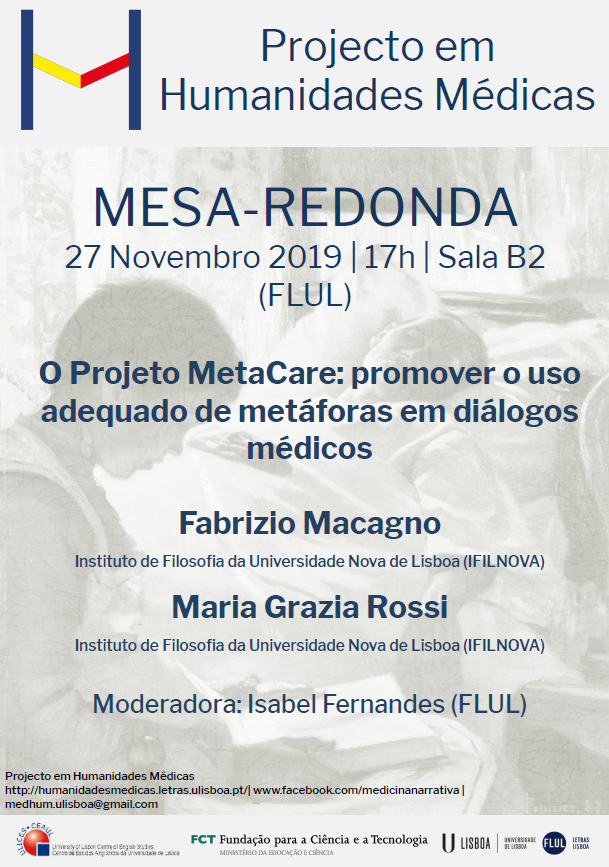
The analysis of how understanding is co-constructed between patients and providers can be challenging in many ways, especially considering the complexity of the dialogical purposes pursued within the institutional context of healthcare. In this presentation, we aim at showing how insights and tools developed within the fields of pragmatics and argumentation can contribute to addressing this challenge and developing new tools of analysis. More specifically, we discuss how we are using a pragmatic and argumentative framework within the MetaCare project, a research program devoted to analyzing how metaphors are used and understood in the context of diabetes care.
In the first part, we introduce the MetaCare objectives to specify how we want to use metaphors as educational tools to foster patient understanding and decision-making. In the second part, we will present the findings of two studies we conducted to analyze how metaphors are being used and understood by providers and patients affected by diabetes. We conclude sketching out future directions and practical implications resulting from these studies.
Fabrizio Macagno (Ph.D. UCSC, Milan, 2008) works as a researcher and auxiliary professor at the Universidade Nova de Lisboa. He is author of more than 80 papers on definition, presupposition, argumentation schemes, and dialogue analysis published on major international peer-reviewed journals such as Journal of Pragmatics, Intercultural Pragmatics, Argumentation, and Philosophy and Rhetoric. His most important publications include the books Argumentation Schemes (CUP 2008), Emotive language in argumentation (CUP 2014), and Interpreting straw man argumentation (Springer 2017).
Maria Grazia Rossi (Ph.D Università di Messina, Messina, 2012) works as post-doc researcher at the Universidade Nova de Lisboa. Her current research focus on the role of metaphors as argumentative tools to foster patient understanding. She has worked on metaphors and emotions as reasoning and decision-making tools, especially in the medical and moral context. She published a monograph, several articles and edited books, among which “Coding Problematic Understanding in Patient–provider Interactions” (Health Communication, 2019, with F. Macagno), “Metaphors and problematic understanding in chronic care communication” (Journal of Pragmatics, 2019, with F. Macagno) and “The ethical convenience of non-neutrality in medical encounters. Argumentative instruments for healthcare providers” (Teoria, 2017, with D. Leone D. & S. Bigi).



















